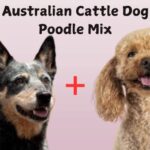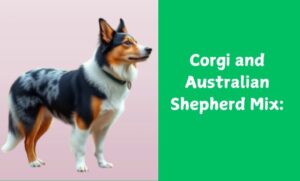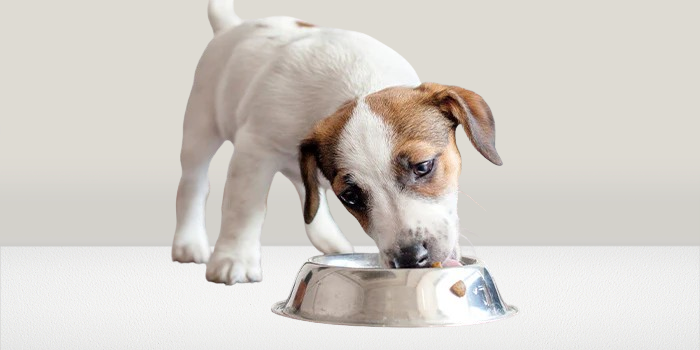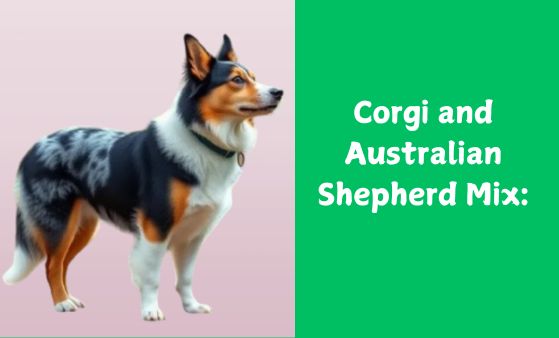Introduction
Finding the right dog food for small breeds is essential to keeping your tiny companion healthy, active, and happy. Unlike large breeds, small dogs have unique nutritional needs due to their faster metabolisms and different energy requirements. Choosing the best dog food for small breeds can feel challenging due to the variety of options on the market. In this guide, we’ll explore what makes small breed dog food unique, the pros and cons of different types, and tips to ensure your little dog is getting exactly what they need.
Why Small Breeds Need Special Dog Food
Small breeds have higher energy demands than larger dogs. Despite their small size, they often burn calories faster, which means they need food that’s nutrient-dense and calorie-rich to keep up with their active lifestyles. A proper diet ensures they maintain a healthy weight, supports their delicate bones, and helps prevent health issues common in small dogs, such as hypoglycaemia (low blood sugar), dental issues, and digestive sensitivity.
Small breed dog foods are specially formulated to meet these needs, with smaller kibble sizes that are easier for tiny mouths to chew. They also often contain a higher fat and protein content to support muscle health and energy levels.
Key Nutrients to Look for in Small Breed Dog Food
When selecting dog food for small breeds, look for high-quality ingredients that cater to your dog’s size and energy level.
Premium Protein Sources: Protein is vital for building strong muscles and supporting overall health. Choose foods with real meat sources like chicken, lamb, or fish listed as the first ingredient to guarantee a high-quality protein.
Healthy Fats: Fats provide energy and support coat health. Omega-3 and Omega-6 fatty acids, commonly found in fish oils, are excellent for maintaining a shiny coat and healthy skin.
Carbohydrates for Energy: Whole grains or vegetables like sweet potatoes and carrots provide carbohydrates to keep your dog’s energy levels stable.
Fiber for Digestive Health: Small dogs are often prone to digestive sensitivities, so a fiber-rich diet with ingredients like beet pulp or brown rice can promote good digestion.
Vitamins and Minerals: Small breed dogs benefit from extra vitamins and minerals to support their immune system and overall vitality. Calcium, for instance, is essential for their bone health, while antioxidants from fruits and vegetables boost immunity.
Types of Dog Food for Small Breeds: Pros and Cons

With the right dog food, your small breed will stay healthy, but each type has its pros and cons.
1. Dry Kibble
Dry kibble is the most popular choice for small breeds because it’s convenient, affordable, and often specifically formulated with a small kibble size for easy chewing.
Pros: Affordable, convenient, and can help maintain dental health by reducing plaque.
Cons: Some dogs may find kibble too hard, especially if they have dental issues. Low-quality kibble can also contain fillers.
2. Wet Food
Wet food is generally more palatable for dogs, as it’s richer in flavour and has a softer texture.
Pros: High moisture content is beneficial for hydration; generally more flavourful and appealing for picky eaters.
Cons: More expensive than dry kibble and can lead to plaque build-up if not paired with good dental care.
3. Freeze-Dried and Dehydrated Food
Freeze-dried and dehydrated foods offer the convenience of dry food with the flavour and nutrient density of fresh food.
Pros: Long shelf life, nutritionally dense, and often less processed than kibble or canned food.
Cons: Can be costly, and some brands require rehydration before serving, which can be less convenient.
4. Homemade or Raw Diets
Some owners choose to feed their small breed a homemade or raw diet to ensure they’re getting natural, unprocessed ingredients.
Pros: Full control over ingredients; often more natural.
Cons: Can be expensive and time-consuming to prepare, and if not properly balanced, can lead to nutrient deficiencies. Consultation with a vet or pet nutritionist is recommended.
Feeding Frequency and Portion Control for Small Breeds
experts recommend feeding small dogs two to three times daily. Since small breeds are prone to hypoglycaemia, regular feedings help maintain their blood sugar levels.
Controlling portion sizes is essential to prevent obesity since small dogs are especially prone to gaining weight. It’s best to refer to the feeding instructions on your dog food packaging, making adjustments as needed based on your dog’s activity level, age, and size.
Ingredients to Avoid in Small Breed Dog Food
Not all dog foods offer the same quality, and some ingredients can actually be harmful to your small dog’s health. Here are some key ingredients you should try to avoid:
Artificial Preservatives and Colorants: Chemicals like BHA, BHT, and artificial dyes can be harmful in the long term.
Low-Quality Fillers: Corn, soy, and wheat are often used as cheap fillers with limited nutritional value and can lead to food allergies.
By-Products: Meat by-products are lower-quality protein sources and may not provide the essential nutrients your small dog needs.
Top Dog Food Brands for Small Breeds

To simplify your search, here are a few dog food brands known for producing high-quality, small-breed formulas:
Blue Buffalo Life Protection Small Breed: Known for its high-quality protein sources and nutrient-dense formula, Blue Buffalo offers grain-free options for sensitive dogs.
Wellness CORE Small Breed: A protein-rich, grain-free option with premium ingredients that support small breeds’ health needs.
Hill’s Science Diet Small Paws: A well-balanced option, especially for small dogs with sensitive digestion, it includes small kibble and a range of vitamins and minerals.
Royal Canin Small Adult: Designed with small breeds in mind, Royal Canin offers a range of flavours and is often recommended by veterinarians.
Signs That Your Small Breed’s Dog Food May Need Adjusting
Choosing the right food is crucial, but it’s equally important to monitor your small dog’s reaction to their diet. Here are some signs that their food might not be the best fit:
Gastrointestinal Issues: Persistent diarrhoea, constipation, or vomiting could indicate that the food is not agreeing with them.
Dull Coat: If their coat loses its shine, it may be due to a lack of essential fatty acids in their diet.
Low Energy Levels: Lethargy or lack of interest in play could mean your dog isn’t getting enough energy from their food.
If you notice any of these signs, consult your vet to determine whether a diet adjustment or a change in dog food might be necessary.
Final Thoughts: Choosing the Best Dog Food for Small Breeds
Finding the right dog food for small breeds takes some consideration, but it’s worth the effort to ensure your little companion gets the nutrients they need to thrive. Focus on high-quality ingredients, adequate protein and fat levels, and a balance of vitamins and minerals to support their health and energy needs. By choosing wisely, you’ll help your small breed live a long, happy, and healthy life.

















